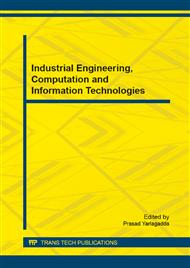p.1337
p.1343
p.1348
p.1352
p.1359
p.1365
p.1369
p.1376
p.1380
A Quantitative Study of Demotivators of Senior High School under the Age of Modern Information Technology
Abstract:
Under the age of information technology, learners’ demotivators present different traits. The paper conducted a study on a Beijing Local Municipal Senior High School which is city-owned and does not enjoy too much priorities and performed average among all Beijing Middle High schools in terms of college entrance exam rate which would be a barometer of all the high schools in the city. The paper tried to figure out 7 demotivators that distracted middle school students in their process of studying English as a foreign language: learner-level factor, teacher-related competence factor, practicability factor, teacher’s behaviour factor, career plan factor, text length factor and parents’ stress factor. The implication of the SPSS showed that learner related demotivation is one of the biggest demotivators while in the western countries teacher factor is one of the biggest factors demotivating students according to some studies. There is no significant difference between the self-reported less motivated learners and more motivated learners among the middle school students.
Info:
Periodical:
Pages:
1359-1364
Citation:
Online since:
December 2014
Authors:
Price:
Сopyright:
© 2015 Trans Tech Publications Ltd. All Rights Reserved
Share:
Citation:


